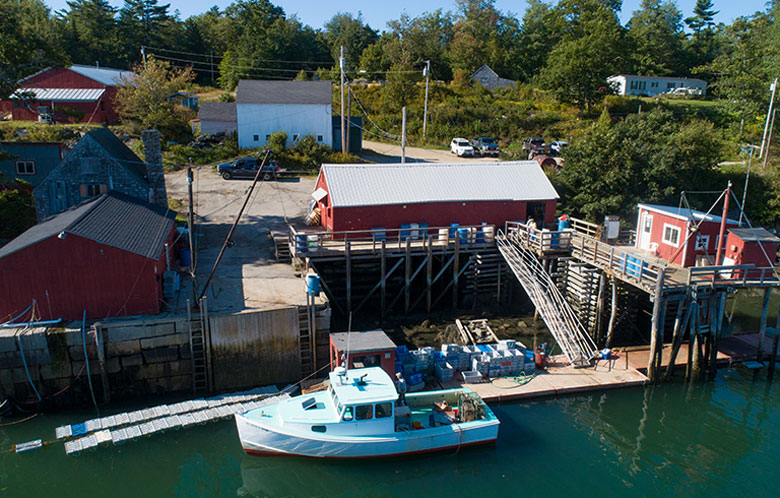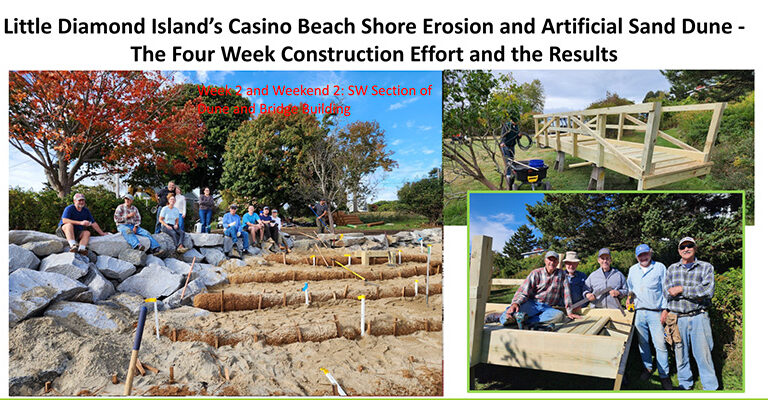The opinions expressed here do not reflect the views of Island Institute, the publisher of The Working Waterfront.
Over the past year, there has been a growing movement to address the issues facing Maine’s working waterfronts—from Gov. Mills’ Infrastructure Rebuilding and Resilience Commission and Maine’s updated climate action plan, to the Working Waterfront Coalition and community conversations like those hosted by Maine Sea Grant on storm response and preparedness in working waterfront communities.
Despite the great work these task forces, coalitions, and conversations are accomplishing, they still don’t address a key structural barrier: the ability of the Legislature to engage in long-term planning. The January storms of a year ago didn’t just reveal the vulnerabilities of our infrastructure; they exposed a clear breakdown in communication between advocates, coastal communities, and the Legislature.
The Legislature contains many institutional flaws that make it hard to set strategic long-term goals. We have term limits, which results in high turnover, which then leads to poor institutional memory. Our current system incentivizes short-term priority setting and is reactive in policymaking. Additionally, we are faced with constant competing priorities and crises.
The Legislature needs an ongoing, permanent commission on working waterfronts…
One thing I have heard time and again in my conversations with nonprofits, communities, fishermen, and aquaculturists is the need for the state to center working waterfronts as a long-term priority.
With this in mind, it is evident the Legislature needs an ongoing, permanent commission on working waterfronts.
This permanent commission can serve as a “brain trust” for the Legislature, allowing for consistency in advancing and crafting policy as representatives and senators come and go.
Further, the commission will allow for better coordination between policymakers in Augusta and outside partners, continuing to hold the Legislature accountable when it fails to meet its goals. This will help center working waterfronts as a strategic priority for the Legislature, instead of acting only when crisis strikes.
This commission will be led by key members of Maine’s working waterfront communities, including members of the Wabanaki Nations, towns, nonprofits, trade organizations, educational institutions, and industries. This group of community members will be tasked with developing a statewide plan for the Legislature to use as a roadmap and will consolidate, incorporate, and build off the work that has already been done by state agencies, nonprofits, and task forces.
That work will ensure that, despite turnover and shifting priorities in the Legislature, supporting our working waterfronts will still be of high importance. Further, this commission will have the ability to aid committees and legislators in drafting effective legislation.
I believe that with annual updates and recommendations from this commission, legislators will receive the information necessary to better support our working waterfronts and make them a strategic priority, not just for our coast, but for our entire state.
This necessary structural change will lead to thriving working waterfronts years into the future, a fix we must make soon. Without our working waterfronts, our state not only risks losing out on a major source of revenue, but we also risk losing a key piece of our identity.
Failure to protect our working waterfronts also jeopardizes our state’s long-term food and energy security. It’s time the Legislature recognizes that the health of our working waterfronts impacts all Mainers.
I welcome feedback on how this permanent commission should be structured and how it can best represent and advocate for the needs of stakeholders and communities. Together, we can center the protection of our working waterfronts as a long-term priority for my colleagues in the State House, not just for those who represent coastal and island communities, but for all of Maine.
Morgan Rielly, a Democrat from Westbrook, is serving his third term in the Maine House of Representatives and is a member of the Environment and Natural Resources Committee and the Marine Resources
Committee.





